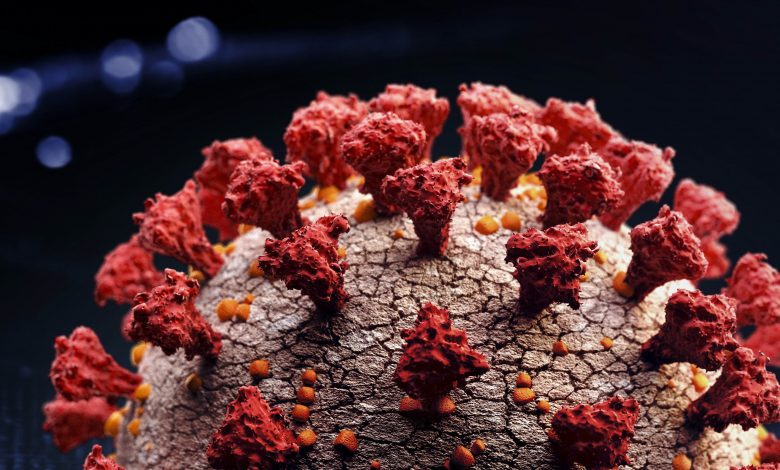COVID-19: Health Experts Warn of Spike As Governments Open Economies

With the relaxation of COVID-19 lockdowns across the globe, health experts warn that slow and steady restrictions must be implemented to curb increases in the virus infection.
They advise that extensive contact tracing and widespread testing be carried out to contain the spread of the virus.
Gregory Poland, Director of Mayo Clinic’s Vaccine Research Group in the U.S. said, “Otherwise you simply let everybody out for a few days and two weeks later have a surge in cases and have to start all over again.,,,”
He warned that, “Most communities do not have that capacity.”
As of May 21, there were over five million confirmed cases globally with 328,172 deaths and more than 1.32 million recoveries.
On Monday, May 25, 2020, a report quoted William Haseltine, a top U.S scientist, as saying that a COVID-19 vaccine would not be developed anytime soon.
“Do not listen to the politicians who say we’re going to have one by the time reelection comes around. Maybe we will [but] I’m just saying it’s not a slam dunk by any means,” he said.
Haseltine noted that the U.S. with other countries with high death tolls, had not done enough to enforce self isolating measures.
In countries across the West, governments are worried about the economic impact of the lockdowns and the looming global recession, he said.
Essential services such as food production, construction and manufacturing are gradually opening allowing millions of people to return to work.
Restrictions on schools, burials, travel and entertainment are slowly being eased in phases, with guidelines requiring the use of face masks, social distancing, frequent disinfection and limited number of people in business spaces.
In response to the financial strain COVID-19 has caused, Giuseppe Conte, the Italian Prime Minister, said: “We could wait for a vaccine, but we can’t afford it. We have to accept [the risks], otherwise we will never be able to restart.”
After a 10-week lockdown, bars, churches and restaurants in Italy are slowly opening in phases. Four million Italians are also going back to work in the essential sectors.
The country has seen a steady drop in its death toll.
On May 18, BBC reported that 145 people died from the virus within 24 hours, a significant difference from the highest daily death toll of 900 on March 27.
With a population of 60 million, COVID-19 has killed over 32,000 people in Italy.
Other countries, including Greece and Spain, have opened recreational areas such as beaches and restaurants.
Greece will open its tourism sector from July, while France is planning to ease restrictions from June.
The U.S. eased its lockdown amidst health officials warning that Americans were at increased risk of contracting the virus.
• John Hopkins University reported that since the easing of the lockdown , 17 states had reported a rise in their average daily cases—nearly 10 per cent — over the course of seven days.
Sixteen states’ daily average experienced a 10 per cent drop in cases, while the rest stayed mostly the same, it stated.
John Hopkins University reported a steady increase in cases since the lockdown was eased with 1,400 additional deaths reported on Saturday.
The U.S. has the highest rate of infection with 1.6 million confirmed cases.
The U.K, one of the hardest hit countries, recently issued a 50-page roadmap for its lockdown easing.
The document addresses education, transport, essential services and travel against background of the country’s increasing infections and the fact that it has the second highest death toll in the world.
On May 10, Dr David Hepburn, an intensive care consultant in Wales, tweeted his disapproval of the lockdown easing.
He said: “Just watched the conga lines/street parties on the news. The nation has lost it’s f*!!ing mind.
“We’re strapping in for the second wave. I’m so, so tired, and so pissed off. We’ve had a few days of respite and I was starting to feel hopeful. Can’t believe I was so naive.”
Prime Minister Boris Johnson said “life will be different, at least for the foreseeable future.” and added that a cure for coronavirus might never be found.
The Guardian has reported 383 new cases in Britain bringing the total to 35,704.
New Zealand with a population of five million has successfully emerged from nearly two months of strict lockdown.
There have only been 21 deaths from the disease to date in New Zealand due to a rapid response to close borders.
The government has initiated tracing and testing of carriers and implementation.
Prime Minister Jacinda Ardern on Wednesday suggested the possibility of a shorter working week to help kickstart New Zealand’s post-lockdown economy.
Sola Tayo, an Associate Fellow at Chatom House said: “Governments around the world are anxious about the effect prolonged lockdowns are having on their economies.
“The problem with easing lockdowns and reopening societies while cases are still on the rise globally is the risk of further outbreaks which could hamper any economic recovery.
“Many governments have tried to protect workers and industries during the pandemic through economic packages.
“These are very costly so governments are keen for people to return to work where possible.”
Support Our Journalism
There are millions of ordinary people affected by conflict in Africa whose stories are missing in the mainstream media. HumAngle is determined to tell those challenging and under-reported stories, hoping that the people impacted by these conflicts will find the safety and security they deserve.
To ensure that we continue to provide public service coverage, we have a small favour to ask you. We want you to be part of our journalistic endeavour by contributing a token to us.
Your donation will further promote a robust, free, and independent media.
Donate HereStay Closer To The Stories That Matter




